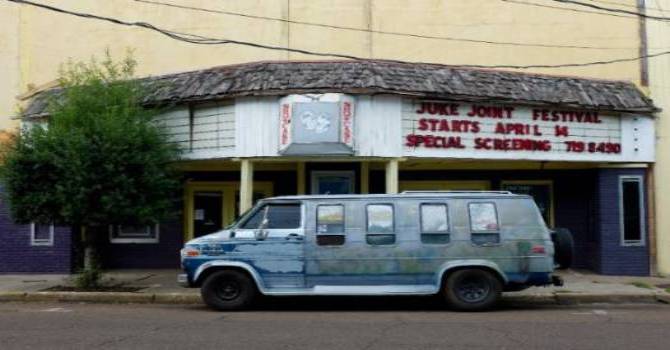Learning About the Mississippi Delta
Huda Bashir
2nd Year MPP & MPH Candidate: Epidemiology

Credit: Juke Joint Festival (Clarksdale, Mississippi). Photo by Peter Burka (Flickr)
Over the last few weeks, my classmates and I have been preparing for our trip to the
Mississippi Delta to work with the University of Mississippi Center for Population
Studies and their students. The goal of this project is to help with the expansion
of the current food prescription program in Tallahatchie County to the surrounding
counties of Coahoma and Quitman. During class we had the privilege to learn about
the Delta and its unique history to better understand structural determinants of health
and how they impact food insecurity in this region. Food insecurity is defined as “a lack of consistent access to enough food for every person in a household
to live an active, healthy life.” 21 percent of the population in the Mississippi Delta currently experiences food insecurity,
double that of the rate for the United States.
A history of racism in Mississippi has led to many structural determinants of health
inequities such as low educational attainment and low access to health providers—but
this did not prevent the Delta region from developing a rich Black history. The Delta
is home to blues music and played a pivotal role in the Civil Rights movement, including
being the birthplace of Fannie Lou Hammer. The legacy of this rich culture inspires
me to continue to fight for health equity in the Delta.
While in Mississippi, we will be conducting focus groups with relevant stakeholders
to expand the current food prescription program in a way that best serves the community’s
needs. We will engage with these stakeholders by leveraging previously established
relationships through the University of Mississippi. After conducting the focus groups,
we will analyze the responses to use them in a final report that will inform the ability
of the counties, University of Mississippi, and the state to expand this program in
the Delta. During this engagement, I’m looking forward to learning more about stakeholders’
experiences through these conversations. I’ve been involved in public participation
work before, but this will give the opportunity to deepen my knowledge of the process
and expand my role in both front-end design and stakeholder engagement.
